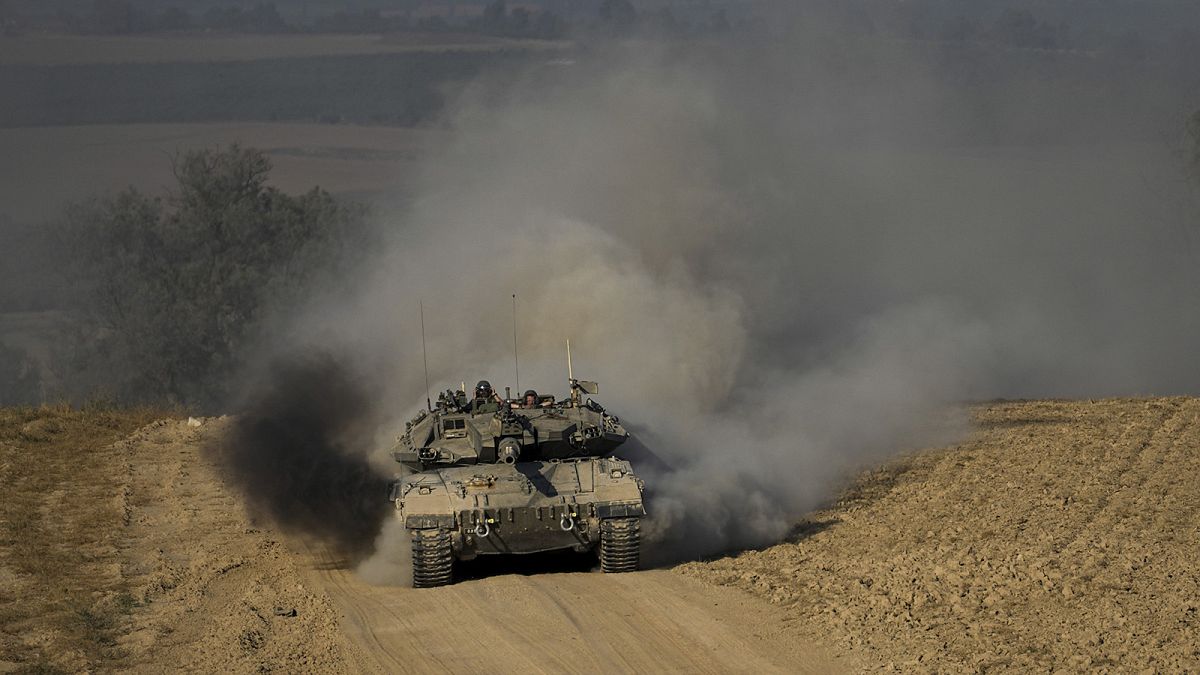During their talks, Blinken underscored the need for a “robust” post-war plan.
Israeli Defence Minister Yoav Gallant is in Washington to discuss the transition to phase C of the war in Gaza with US Secretary of State Antony Blinken.
Gallant is also expected to meet with his counterpart, US Defence Secretary Lloyd Austin, during his visit this week.
For Israel, phase C includes low-intensity fighting in Gaza, targeted airstrikes, withdrawal of forces, the establishment of a buffer zone near Gaza’s border and finding an alternative to Hamas’ rule in the enclave.
According to State Department spokesman Matthew Miller, during their talks on Monday, Blinken underscored the need for a “robust” post-war plan.
The comments come shortly after Israeli Prime Minister Benjamin Netanyahu said he would only be willing to agree to a “partial” ceasefire deal that would not end the war.
Netanyahu’s remarks did not deviate dramatically from what he had previously said about his terms for a deal. But they come at a sensitive time, as Israel and Hamas appear to be moving further apart over the latest ceasefire proposal, and they could represent another setback for mediators trying to end the war.
Speaking to reporters at a briefing Monday, Miller said Blinken planned to address with Gallant “the importance of working on all these plans for the day after the conflict.”
“We have been quite consistent that for there to be, an enduring defeat of Hamas, there needs to be a plan for what replaces them and what replaces them needs to be Palestinian-led governance, needs to be realistic security plans.”
Netanyahu intent on ‘eliminating Hamas’
Also on Sunday, Netanyahu said he would only accept a partial ceasefire deal that would not end the 8-month-long war in Gaza, casting doubt on the viability of a US-backed truce proposal.
Netanyahu said he was ready to make a partial deal to bring back some of the 120 hostages still held by Hamas in the Gaza Strip, but “we are committed to continuing the war after a pause in order to complete the goal of eliminating Hamas.”
The three-phased plan for a truce in Gaza would bring about the release of the remaining hostages in exchange for hundreds of Palestinians imprisoned by Israel. Hamas insists it will not release the remaining hostages unless there’s a permanent cease-fire and a full withdrawal of Israeli forces from Gaza.
Italy’s Defence Minister Guido Crosetto has criticised Netanyahu for his silence on a possible ceasefire and renewed his calls for a stop to the eight-month-long war in Gaza.
“I hope (Benjamin) Netanyahu understands what the international community has been trying to tell Israel for the sake of Israel itself for months,” Crosetto said.
He reiterated that when both the US and Italy ask him to stop, “they do it with Israel’s future well-being in mind.”
EU High Representative for Foreign Affairs Josep Borrell also warned that the war between Israel and Hezbollah could cause a “serious crisis”.
Speaking at the Foreign Affairs Council in Luxembourg, Borrell said it was now “clear that there is no ceasefire at all” and described the humanitarian situation as “disastrous”.
He confirmed that there was political agreement among EU ministers to proceed with sanctions against Hamas as well as “violent Israeli settlers”.





















Discussion about this post